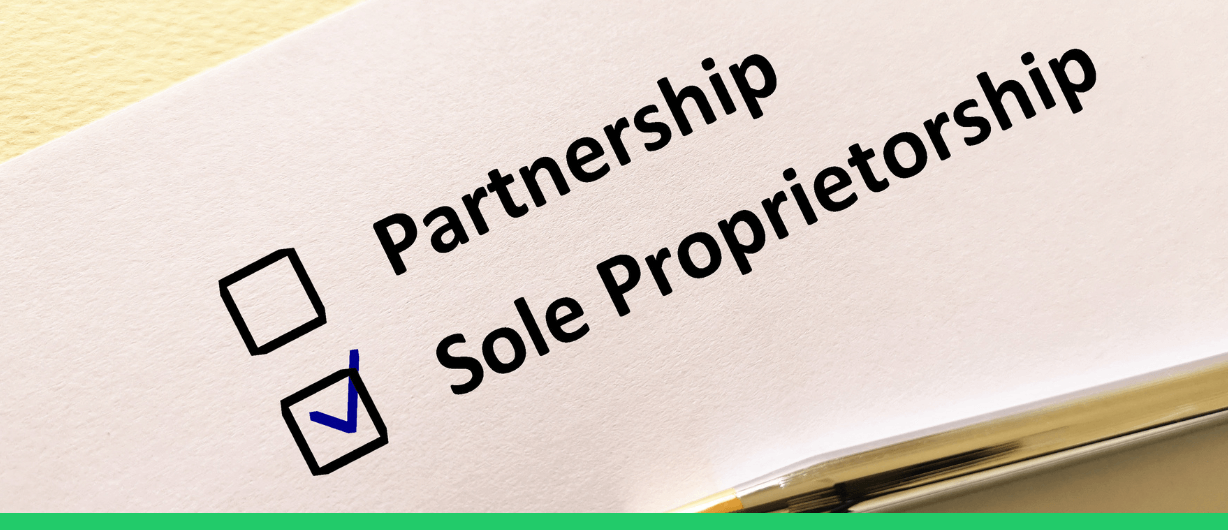August 26 2022 | By Wajiha Danish | 4 minutes Read

10 Important Bookkeeping Tips for Sole Proprietors
Tip # 1 – Draw a line between personal and business finances
Tip # 2 – Never exclude yourself from the payroll
Tip # 3 – Always Reimburse Business Expenses
Tip # 4 – Don’t Lose the Receipts
Tip # 5 – Delegate Bookkeeping to Experts
Tip # 6 – Create a Bookkeeping Checklist
Tip # 7 – Read Accounting Reports
Tip # 8 – Create a Quarterly Budget
Tip # 9 – Be Mindful of High-Cost Expenses
Tip # 10 – Know the Tax Dates
Running a business is tough, and it feels tougher when only one person is at the helm. Thus, it is essential for business owners, especially sole proprietors, to keep their finances structured and balanced.
Bookkeeping lies at the core of small business finances. Not an arduous task to do, but it takes up a lot of time, and time is the most-prized commodity for a business owner.
That’s why we have put together a list of 10 best tips to ensure your sole proprietorship doesn’t get derailed due to messy books.
In the early stages, financial management seems like an unimportant task that needs no expert supervision. However, it is not. Managing business finances requires time, skills, and effort.
It may seem doable at first, however, as your business grows, your finances get harder to manage. Thus, you must keep your finances under a leash from day one. Here’s how you can do so as a sole proprietor:
Mixing personal and business finances is a mistake you better not make. It not only puts your personal assets at risk during the audit but also makes your business finances harder to manage daily.
Even for freelancers, it is best to keep the two accounts and banks separate. By eliminating personal transactions from business accounts, the books get a little easy to manage.
Many sole proprietors often ignore this rule. Although it is not a must for sole traders, it ensures you don’t violate tip #1. If you don’t pay yourself first, you will end up more often than not paying your expenses from your business account.
So, rather than turning to your business finances or credit card every time you go grocery shopping, write yourself a check and keep your finances simple.
To simplify sole proprietorship bookkeeping, it is best to incur all business expenses from your company accounts. However, it is not always possible, and sometimes, you have to chip in with personal funds to keep your business afloat. That’s okay!
However, once you ride the troubled patch and get back up, you must reimburse your account with those funds. So, later, you won’t have to go back and forth to balance your books.
A receipt is a transaction record, and bookkeeping becomes impossible without records. So, no matter how small or big the transaction, keep the bills as they come in handy during the tax season and reconciliations.
No matter how skilled you are, it is always better to leave bookkeeping to the experts. Why? Because even if you have the expertise, bookkeeping takes up time that is better invested in business growth.
So, for the ones who know how to keep books and those who don’t, it is better to delegate it to experts. Fortunately, small business owners and sole proprietors don’t have to hire a team to balance their books. Due to virtual services, you can hire experts to manage your finances at hourly rates.
See Also: How Does Outsourced Bookkeeping At Monily Work?
As a sole proprietor, it is natural to forget things once in a while. However, some things must not be forgotten, like issuing invoices, rechecking payments, producing financial statements, and closing books.
Create and use a weekly or monthly bookkeeping checklist to stay on top of your finances. It not only reminds you about things to do but also shows the things you missed.
No matter the business type or industry, every business owner must know how to read financial reports. They help you identify your shortcomings and assess what works and what doesn’t. Familiarize yourself with key bookkeeping terms and use accounting reports as a tool to lead your business to success.
Use Profit & Loss reports to create a quarterly budget and abide by it. It helps you predict future sales and stay prepared for the highs and the lows. A quarterly budget is a great way to steer your business forward for the win and keep your expenses under control.
You can’t assess your finances 24/7, and it is natural to let some expenses slide. However, you can’t afford to do so with high costs, like payroll and inventory updates. Be mindful of these expenses and ensure you don’t end up paying consistently for the things you don’t need.
Last but not least, you must know the tax dates by heart as a sole proprietor. Business success is about managing the little things right. If you miss a tax date, it doesn’t just add more burden and expense on your business but also makes it more difficult to catch up.
Subscribe for business tips, tax updates, financial fundamentals and more.
MORE BLOGS

In the world of small businesses, managing finances can quickly become overwhelming. Enter the bookkeeper – a financial wizard who keeps your accounts in order, ensuring […]
Learn More →
In today’s digital world, small businesses are in for a tough time when it comes to managing their finances. Traditional bookkeeping methods are a real drag […]
Learn More →
The emergence of AI has impacted a number of sectors, including bookkeeping. AI bookkeeping solutions have been growing in popularity among small firms in recent years […]
Learn More →